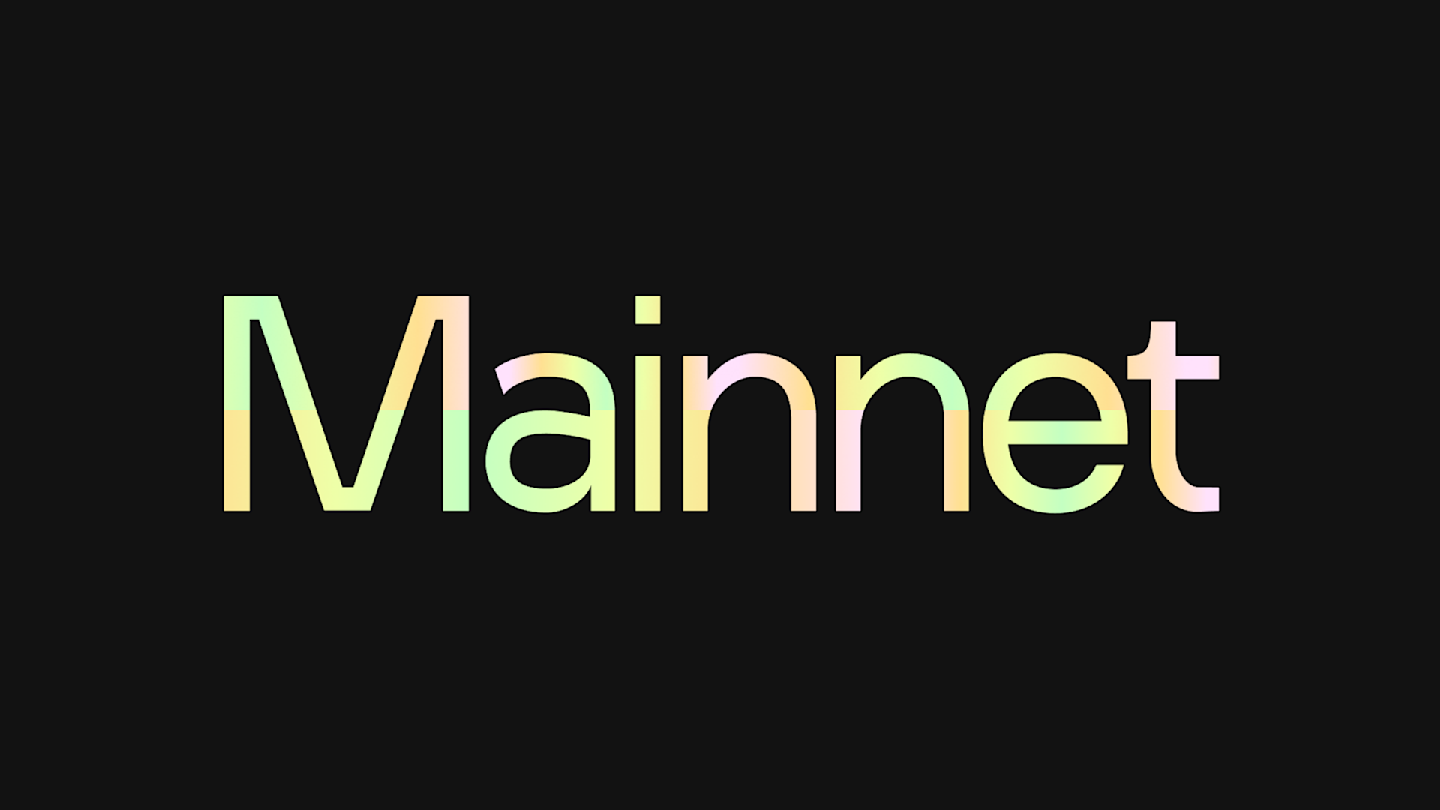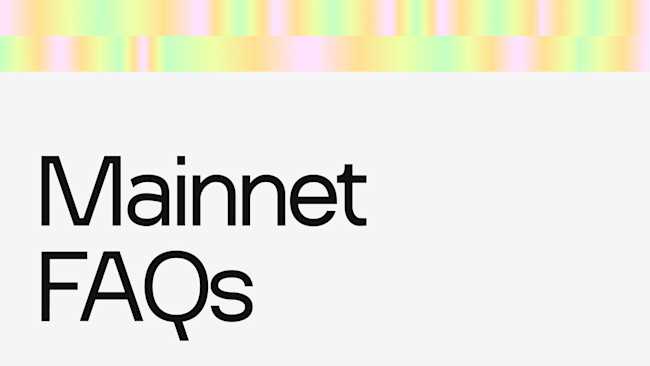Aleo Mainnet is Here

Today, we’re proud to announce that Aleo Mainnet is officially live, enabling developers to build the next generation of decentralized applications powered by zero-knowledge cryptography.
And we couldn’t have done it without you.
The Aleo Network is the product of years of work from thousands of contributors from around the world. From the many people that participated in the trusted setup ceremony, to the provers and validators that participated in Testnets 1-4, to the many developers who have created the 350 applications deployed on Aleo, this launch is the product of an entire community.
Today’s launch ushers in a new era for decentralized, privacy-preserving computing that can change the internet by protecting user data and enabling a secure experience online. Combining a new Layer-1 smart contract blockchain with the power of zero-knowledge cryptography, Aleo enables developers to write applications that seamlessly interoperate between Web2 and Web3.
From research to reality: The genesis of Aleo
This moment is the culmination of the better part of a decade of research and development in blockchain technology and zero-knowledge cryptography.
It all started with Zexe: Enabling Decentralized Private Computation published in 2018. Zexe was written by leading zero-knowledge researchers with the idea to extend the model of Zerocash to a broader smart contract paradigm. In 2020, Zexe co-author Howard Wu decided to create a company.
Fast forward nearly five years and the dream of Zexe has become a reality in the Aleo Network, a platform for secure, scalable applications that open up new possibilities for developers in Web3 and Web2 alike. For the first time in history, developers have access to a platform that is privacy-preserving, permissionless, and programmable.
Solve the internet's biggest challenges
In a world where data breaches and privacy violations have become the norm, zero-knowledge is crucial for taking back the confidentiality of our personal data. Imagine a world where you can choose to share only the part of your medical record necessary for approving your health insurance claim, while keeping other personal details private. Or sharing just enough financial information to qualify for a loan, without having to reveal every single transaction from your bank account for the past 30 days.
Aleo allows you to share only the data you want to — and nothing else.
Starting today, developers can build truly secure applications and products that address real-world problems like:
Secure Identity Verification
Robust digital identity solutions remain an unsolved problem not just for Web3, but for the internet as a whole. Aleo-powered solutions like zPass and Bandio allow individuals to make attestations about their identity, such as their nationality or age, without leaking other information and without relying on a centralized server.
Scalable, Compliant Payments
Stablecoins are finding increasing product-market fit in crypto. But to truly replace existing payments infrastructure, stablecoin transactions must protect personal financial information. Aleo’s privacy-preserving smart contract infrastructure enables this while ensuring compliance.
Trust-Minimized Oracle Infrastructure
Recent innovations in zero-knowledge cryptography such as zkTLS are all about bridging real world data on-chain, while using zero-knowledge cryptography to ensure that happens in a trust-minimized way.
Hidden Information Games
While traditional blockchain games enable ownership of in-game items and interoperability as unique mechanics, the transparency of networks like Ethereum mean that applications like poker or Battleship aren't possible. This is because those games rely on the mechanic of hidden information. But Aleo's model of public and private state makes hidden-information games possible, as demonstrated by Puzzle, a mobile and extension wallet to play zkGames & earn rewards.
Proof of Useful Work
Aleo’s zero-knowledge proof technology can incentivize users to solve large computational problems by offering verifiable rewards for useful work. This model allows participants to contribute solutions to complex challenges—such as discovering Mersenne primes or optimizing solutions to the traveling salesman problem—while protecting the methods by which they solved the problem. By leveraging Aleo’s privacy-preserving infrastructure, users can be rewarded fairly for their computational contributions in a trustless, cryptographically secure manner, unlocking new possibilities for decentralized problem-solving and DeSci.
And this is only the tip of the iceberg. As of this writing, there are over 350 teams that have built or are building infrastructure and applications on Aleo.
An evolution in blockchain
These applications are uniquely enabled by Aleo’s tech stack, which has been developed iteratively over the course of five years. The Aleo mainnet represents numerous innovations that reflect the learnings from previous testnets as well as other ecosystems.
These features include:
Proof-of-Succinct-Work (PoSW) Originally intended to be the consensus protocol for Aleo, PoSW provides a crypto-economic mechanism to incentivize investment in specialized hardware for generating zero-knowledge proofs. Already on mainnet, over 100,000 GPUs are solving PoSW puzzles and earning rewards from the protocol.
Leo Language The Leo-language is a domain-specific language for writing programs on Aleo. Unlike other smart contract languages like Solidity or Move, Leo gives developers access to a unique paradigm to enable applications to utilize both public and private state in an intuitive, easy-to-learn package. In addition, Leo also enables interoperability between programs, a first for a zero-knowledge blockchain.
AleoBFT Our core consensus protocol, designed with the help of the a16z crypto research team, incorporates the latest thinking in distributed systems and cryptoeconomic security.
Varuna An iteration of the Marlin proof system that incorporates batching, Varuna economizes the proof generation step by amortizing the cost of generating many individual proofs as part of a single function call, making Aleo an ideal base layer for zk-rollups or proving-as-a-service.
From testnet to mainnet and beyond
The Aleo Network Foundation aims to play an essential role in nurturing and supporting the Aleo Network’s growing and decentralized open-source ecosystem. And with mainnet, we’re playing the long game, where decentralization is the first step in building a more democratic, user-centric internet over time.
On behalf of the Aleo Network Foundation, whose mission is to steward and promote the adoption of Aleo and zero-knowledge technology, I'd like to personally thank every single one of those people for their efforts to get us to this point. But this is only the beginning of the story. And I'm extremely excited to see how things go from here.
Build on Mainnet
Our newly updated developer docs are here to help you kick off your next ZK project. Or you can jump right into creating a program using our online Leo IDE. Got an idea but need a little help? Join our Discord.


